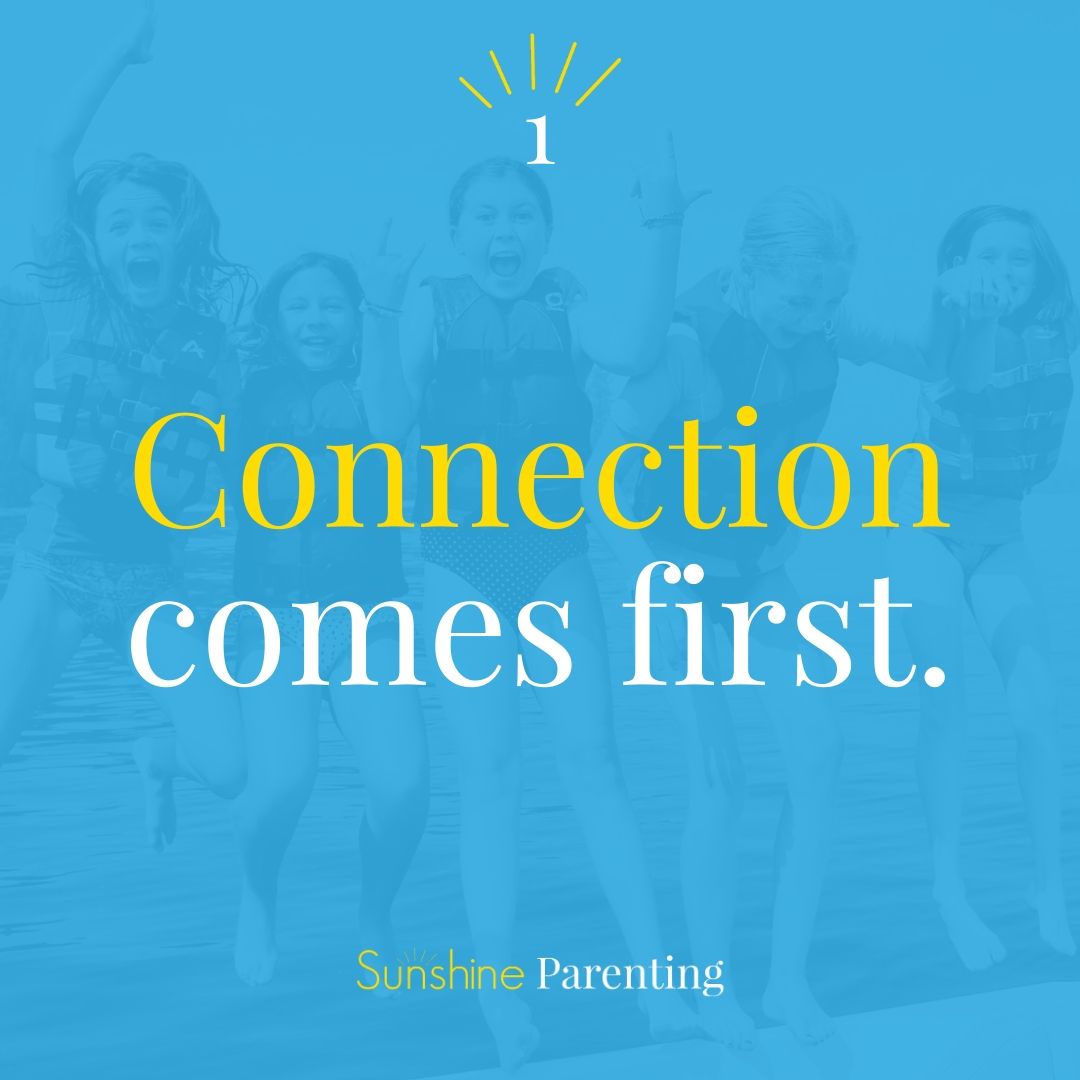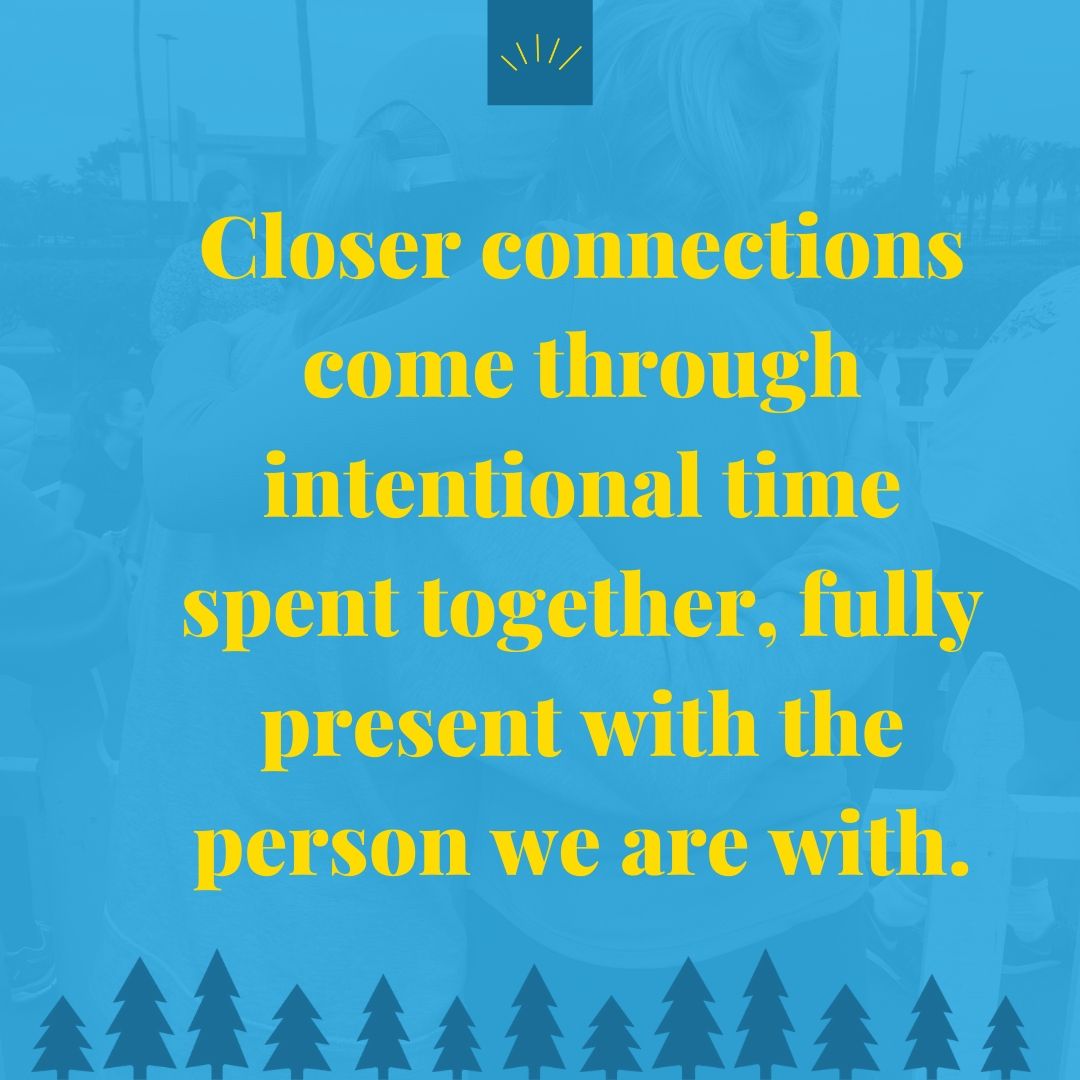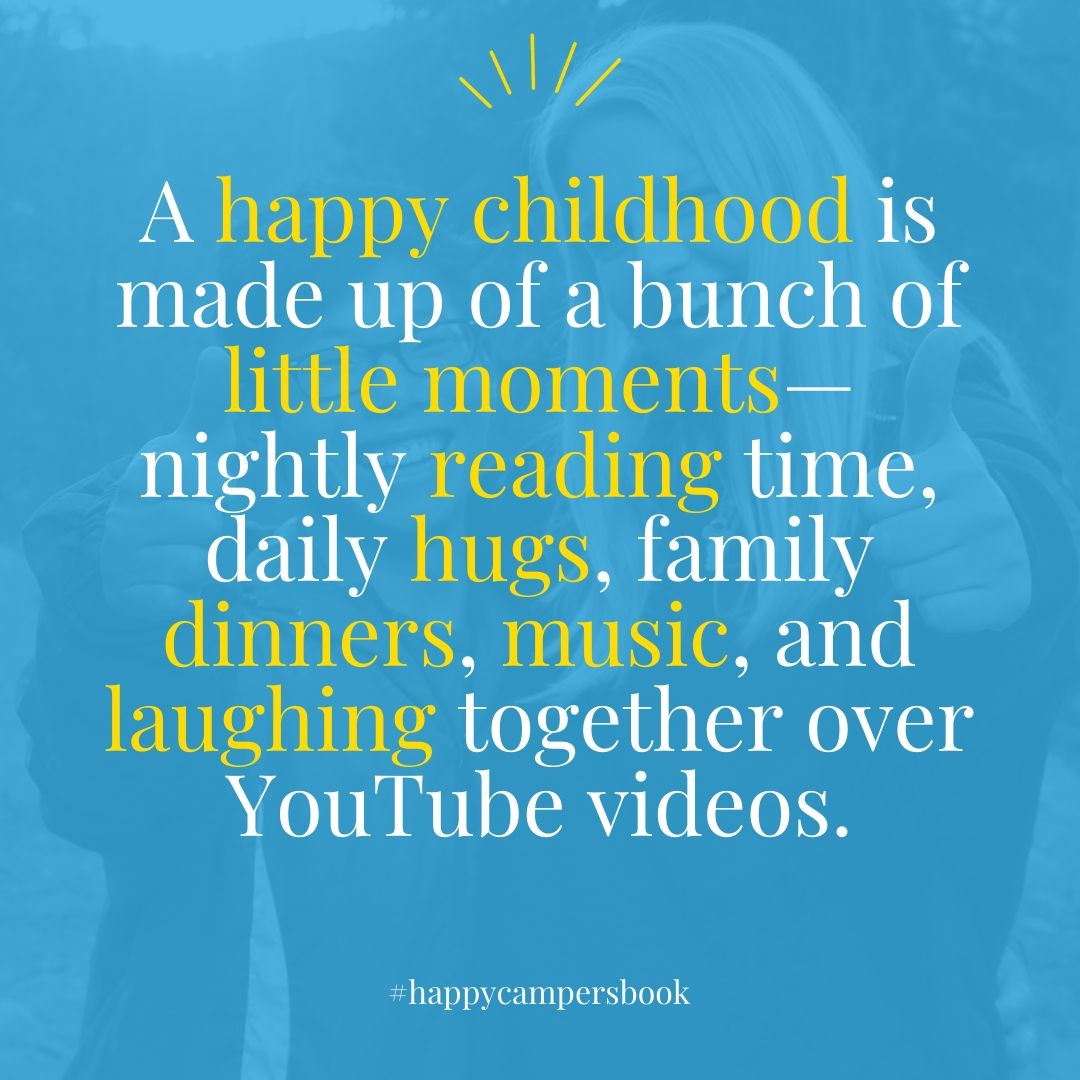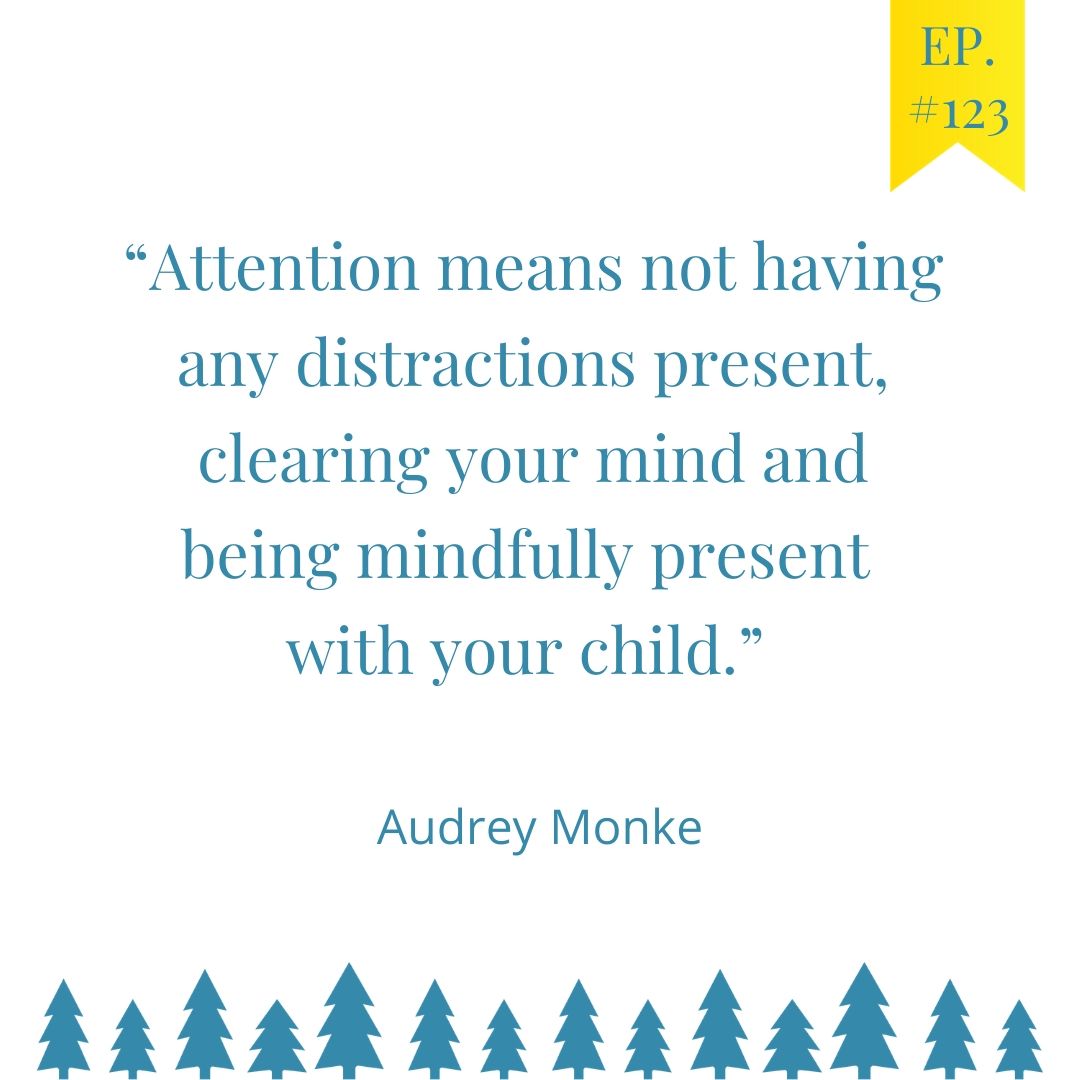Jan 17, 2020
Show notes & links available here.
In this episode, I'm talking about my theme for this month: Connection!
All month long, my posts and podcast episodes are centered
around this topic, and it's one that I feel is critically important
to raising thriving kids. In fact, the first chapter of my book
Happy Campers (Secret #1) is
Connection comes first.
6 Tips for Creating Connection
#1 Ask good questions.
As Chris Thurber shared in last week's episode (Ep. 122: How to Connect with Your Teen with Chris Thurber), Parents often ask kids questions about school and sports - questions that focus on their achievements - instead of questions that are more about them as a person.
Use my Questions for Connection download (below) for 50 questions that can help spur deeper conversations with your kids. These kinds of questions show your child that you care about them, and you're interested in their thoughts and feelings.
Don't forget to ask follow up questions. If they share about a topic, circling back to that, even a day or a week later shows that you were really listening and cared about what they shared.
#2 Give kids your full attention.
As little as 5 minutes a day giving your child your full attention will make a big difference. It might be easiest to have this be at the same time every day so that it becomes a habit, such as at bedtime. Kids need our full, undivided, undistracted attention for at least a few minutes every day.
#3 Listen & Empathize
Listen and empathize, instead of trying to solve their problems for them. When parents do less preaching and teaching and just show up for their kids, it builds trust and confidence. Make sure kids know that we're on their team and we're with them whether or not they've made a mistake, gotten a bad grade, or are having some kind of problem.
#4 Have a daily sharing practice.
Sharing can be any time of day and in any format. When we look for good things in our daily lives we tend to be more positive and our wellbeing increases overall. Start by sharing one good thing that happened--or three.
#5 Write a heartfelt sticky note
Use one of my Sticky Note Solutions to connect with your kids. Leave an encouraging note on their bathroom mirror, on their pillow, or in their lunch box. Tell your child something you really appreciate about them and something that's an inner quality or what we call a Level 3 affirmation.
#6 Use their "Love Language"
Find out what your child's love language is and show them you care by giving small gifts, acts of service, quality time, positive compliments, or affection. Even though we can all appreciate any kind or loving gesture, there are certain ways that we feel most connected with other people. Kids really enjoy it when we speak their love language.
Big Ideas
Creating a close and connected family culture that promotes positive, lifelong relationships is the most important thing we can do for our children.
Forming a positive, nurturing relationship with your child will help ensure your child’s future happiness and success in all areas of life.
Feeling appreciated and accepted for who they are, and knowing that parental love is not conditional on performance, is critical to your child’s well-being.
Our kids need to clearly get the message of belonging at home: “You are valued and needed here.”
Quotes
Audrey: "You can really develop a close bond with someone when you just take the time to ask good questions and then listen intently to their response."
Audrey: "When I'm talking to campers at camp about being a good friend, I share with them that asking questions is a great way to get to know people better and to get closer with your friends. And then really listening to their response and asking followup questions about their answers is like the next level."
Audrey: "I think that full attention is something that is really rare these days. We're all so distracted that to give someone our full, focused attention takes intention."

Audrey: "Attention means really not just not having any distractions present, but clearing your mind and being just really mindfully present with your child."
Audrey: "When our children come to us with their latest kind of issue, challenge, problem, instead of jumping in with our advice and insight and wisdom, take a deep breath, let a little pause happen in the conversation and then say something empathetic."
Audrey: "That's probably the key to so many relationships. Instead of offering our advice and wisdom, just offer our empathy and our connection and being there for them."

Audrey: "I do encourage some kind of daily sharing habit, whether it's just between you and your child or your whole family. It really does improve your connection and it also improves your child's communication skills because they're both sharing with others and they're listening and learning to hopefully ask followup questions and be more aware of what's going on with other people as well."
Audrey: "Sometimes in the day to day life, we're so caught up and keeping things moving forward that I feel like especially when my kids were younger, I spent a lot of time just kind of nagging them. It was so much about logistics was a lot of our conversation, so it wasn't really a very connected feeling."
Audrey: "If you know your child has been really busy at school and regularly has been so great about doing their chores, but you step in and do it for them and say, 'Hey, thanks so much for working so hard at home. I wanted to give you a little lighter load today so I folded your laundry for you.' That would go a long way in just letting your child know how much you care about them."

Resources / Related Posts & Podcasts
Ep. 122: How to Connect with Your Teen with Chris Thurber
Ep. 121: The Power of Showing Up with Dr. Tina Payne Bryson
Giving Kids Our Full Attention
